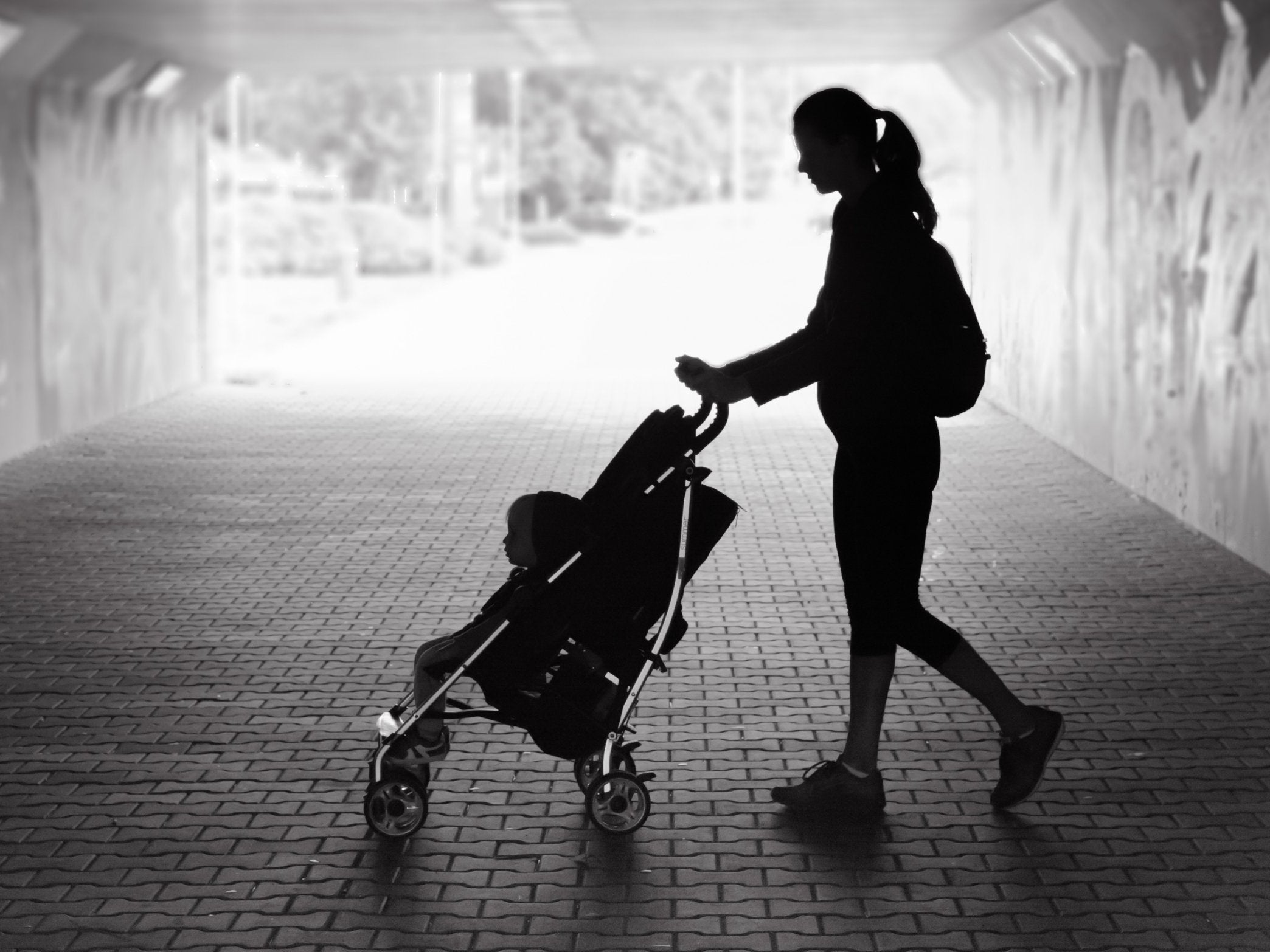Number of single mothers forced into temporary accommodation rises by 75 per cent
‘We talk to mothers who are worried there is no space in their cramped, dirty room for their baby to learn to crawl,’ says Shelter chief executive

Your support helps us to tell the story
From reproductive rights to climate change to Big Tech, The Independent is on the ground when the story is developing. Whether it's investigating the financials of Elon Musk's pro-Trump PAC or producing our latest documentary, 'The A Word', which shines a light on the American women fighting for reproductive rights, we know how important it is to parse out the facts from the messaging.
At such a critical moment in US history, we need reporters on the ground. Your donation allows us to keep sending journalists to speak to both sides of the story.
The Independent is trusted by Americans across the entire political spectrum. And unlike many other quality news outlets, we choose not to lock Americans out of our reporting and analysis with paywalls. We believe quality journalism should be available to everyone, paid for by those who can afford it.
Your support makes all the difference.The number of single mothers living in temporary accommodation has soared by 75 per cent over the past decade, sparking fresh concerns that the government is failing women.
Since 2010, the number of single mothers in B&Bs, hostels, hotels and other places that are unsuitable for bringing up a family has increased by more than 16,000.
Government data shows that 37,750 single women were raising a family in a temporary home in 2019 – a dramatic increase from 21,730 in 2010.
Polly Neate, chief executive of housing charity Shelter, said: “It is simply not right that so many parents are being pushed into the misery of homelessness by our housing emergency.
“Living in temporary accommodation can be a nightmare, especially when you have children with you; there’s often nowhere for them to play or do their homework. Through our services, we talk to mothers who are worried there is no space in their cramped, dirty room for their baby to learn to crawl.
“This crisis has been decades in the making thanks to a dangerous combination of sky-high rents, bone-deep welfare cuts, and a drought of genuinely affordable homes. Serious investment in social housing is the only way to solve this. The upcoming budget is a chance for the government to back social homes and increase housing benefit so it covers the basic cost of rents.”
The total number of households living in temporary accommodation has also skyrocketed, from 50,400 in 2010 to 86,130 in 2019 – a rise of 70 per cent.
Homeless people are offered temporary accommodation while a permanent home is being located. Single women who have young children constitute 44 per cent of all households in temporary accommodation, which is more than double the share of households with two parents in such housing.
John Healey, the shadow housing secretary, said: “Housing is a feminist issue. The housing crisis affects us all, but women are facing the biggest hardships. Labour’s housing plans would help women most when they’re unable to afford to rent, to buy, or are forced to become homeless due to a domestic abuser.
“Labour’s national plan for housing would see a million new genuinely affordable homes, restoration of the link between housing benefit and rents, and more social housing to provide a safe place for women and families in need.”
Sophie Walker, chief executive of the Young Women’s Trust, said: “Single mothers’ homelessness is on the rise because young women are more likely to be sole carers and locked out of work precisely because of their unpaid work and caring responsibilities. This means they are more dependent on a welfare system that has been squeezed hard by 10 years of austerity.
“The only way forward is to build a welfare and housing system that is designed in response to an understanding of women’s needs and experiences. Meanwhile, the government can act swiftly to unfreeze housing benefit, remove the shared accommodation rate for under-35s and fund refuges so every woman experiencing violence has a safe place to go.”
Women are locked out of the housing market, and homes are unaffordable for them in every single English region, a report by the Women’s Budget Group and the Women’s Housing Forum found in July.
Researchers found that women need more than 12 times their annual salary to be able to buy a home in England, while men need just eight times their annual salary.
Average rents take 43 per cent of women’s median earnings, but they take just 28 per cent of men’s.
A representative for the Ministry of Housing, Communities and Local Government has been contacted for comment.
Join our commenting forum
Join thought-provoking conversations, follow other Independent readers and see their replies
Comments